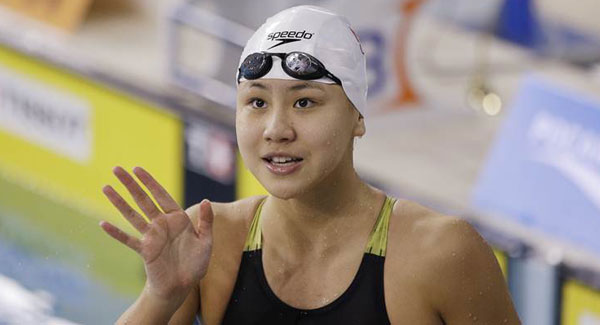The first three athletes to fail drugs tests at the Rio Olympics have been sanctioned by the Court of Arbitration for Sport’s anti-doping division.
Polish weightlifter Tomasz Zielinski, a European champion, was sent home by the team earlier this week after failing a test for the steroid nandrolone and he is now officially ineligible to compete.
Bulgarian 3,000 metres steeplechaser Silvia Danekova is also declared ineligible and will be excluded from Rio 2016 after her positive test for the blood-booster EPO was confirmed.
Like Zielinski, her case will now be passed to her international federation to decide on how long she should be banned.

And Chinese swimmer Chen Xinyi has requested a provisional suspension while she contests her positive test for a controlled diuretic.
The 18-year-old, who finished fourth in the women’s 100 metres butterfly, had been scheduled to compete in the 50 metres freestyle on Friday.
She has asked for her B sample, a smaller control sample used to confirm positives, to be tested and CAS will continue its disciplinary procedure.
While those three cases are the first involving athletes in Rio, there have also been two doping-related scandals related to coaches from Kenya’s athletics team.
On Friday, the ethics board of the International Association of Athletics Federations announced it was provisionally suspending Kenya’s athletics team manager Major Michael Rotich for 180 days.
Rotich, who marched with the team in the opening ceremony, was caught on camera by undercover reporters earlier this year allegedly offering a fake group of British runners warnings on anti-doping tests in Kenya for £10,000.
He was sent home last weekend and is now awaiting trial in custody.
A statement from the IAAF ethics board said: “The chairman of the ethics board has imposed this order for provisional suspension having carefully considered the information available, which discloses a case warranting investigation against Major Rotich in relation to potential subversion of the anti-doping control process in Kenya.”
There was further embarrassment for the athletics superpower on Thursday, when it emerged that another coach, John Anzrah, had also been sent home for allegedly taking a random anti-doping test on behalf of 800m runner Ferguson Rotich.
On Friday, the IOC confirmed what Rotich’s agent had previously told Press Association Sport when it explained that the runner had lent Anzrah his accreditation so he could get a free breakfast in the Athletes’ Village, but had then gone through with the anti-doping test because he was scared of being caught for taking the food.
Ferguson Rotich learned what had happened when the doping control officer questioned the 61-year-old Anzrah further, and the athlete was able to get there in time to provide blood and urine samples.
The IOC, however, has opened disciplinary procedures against both men and the World Anti-Doping Agency told Press Association Sport that it wanted the Kenyan authorities to investigate the matter quickly.
This is particularly important for the east African nation, as it has only recently been declared compliant with global anti-doping rules again.
“We are aware of the situation, which is irresponsible and runs contrary to world anti-doping rules,” a WADA spokesman said.
“Now that Kenya is rule compliant, we expect the Anti-Doping Agency of Kenya to follow up on this immediately, and disclose the outcomes of their findings as a matter of urgency.”


